THE XIAOGANG EXPERIMENT
BY SAM DAVIES
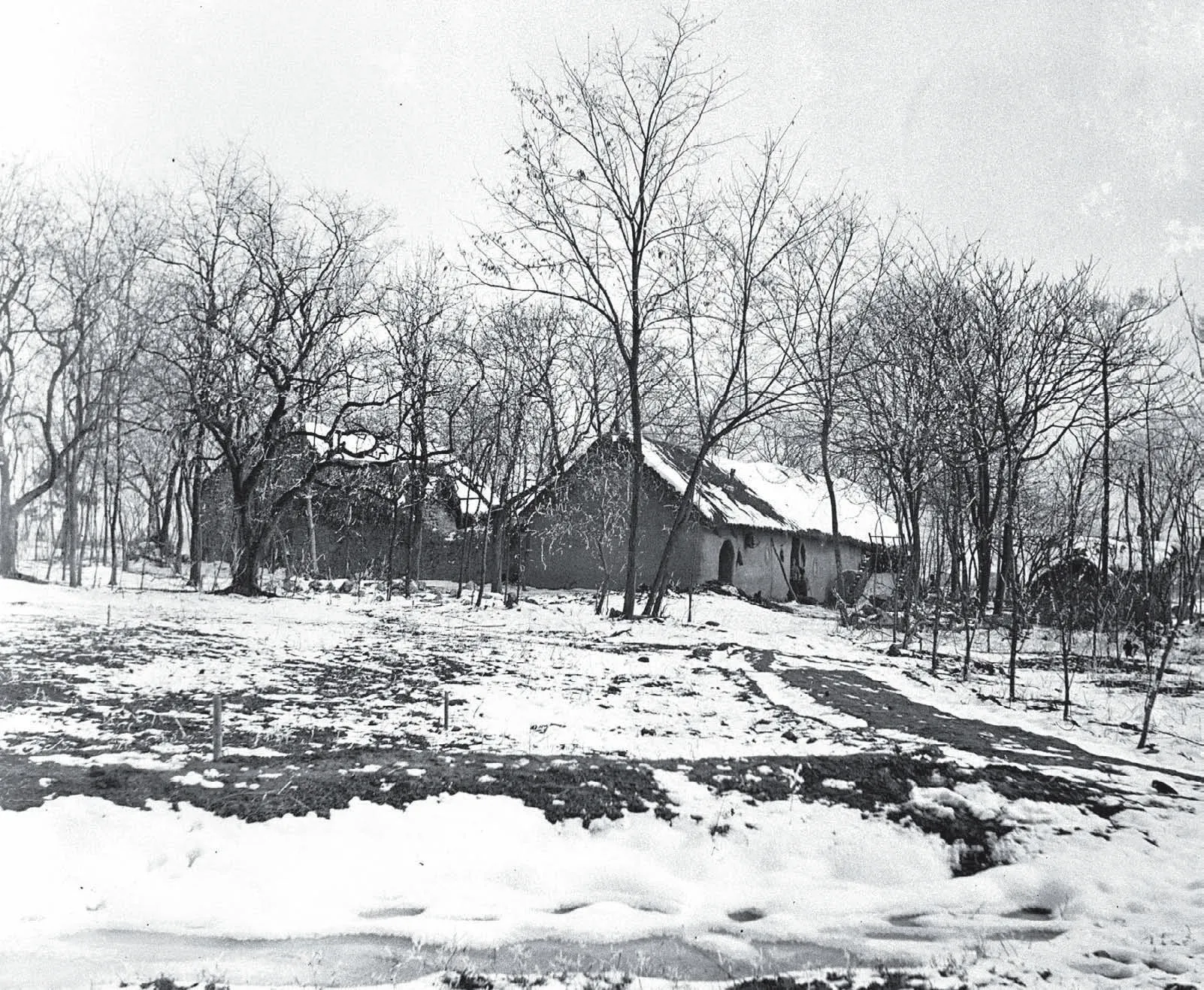
How a village defied collectivism and pioneered China’s road to economic reform
中國小崗村的改革之路
“Come when the sun goes behind the mountain;don’t come all at once,and don’t tell your family,”Yan Hongchang of Xiaogang village, Anhui province,thus summoned his fellow villagers discreetly one day for a fateful summit at his home in December 1978.
Yan, a farmer, had called representatives of the 18 households in the village to an urgent meeting to discuss how they could stave offfamine amid the prospect of yet another poor harvest. In Yan’s dimly lit home that night, they debated a plan that would, if implemented,essentially repudiate the collectivized agricultural system that had been state policy since the Communist Party’s land reforms of the 1950s—a potentially deadly move under the shadow of the recently concluded Cultural Revolution, during which those deemed insuffciently“revolutionary” faced humiliation,imprisonment, or worse.
The decision the Xiaogang farmers reached that night would have repercussions far beyond their own small township. It would eventually prove a catalyst for the reform movement that would drive China’s post-Mao economy, and earn Xiaogang the title of “China’s Number One Reform Village.” Instead of giving everything they produced to their commune (which then gave a portion to the state and divided the rest equally among the peasants), the farmers proposed dividing the land between households, each of which would farm a plot themselves. The households still had to fill government quotas, but were allowed to keep any surplus for themselves, and even sell it on the market if they wished.
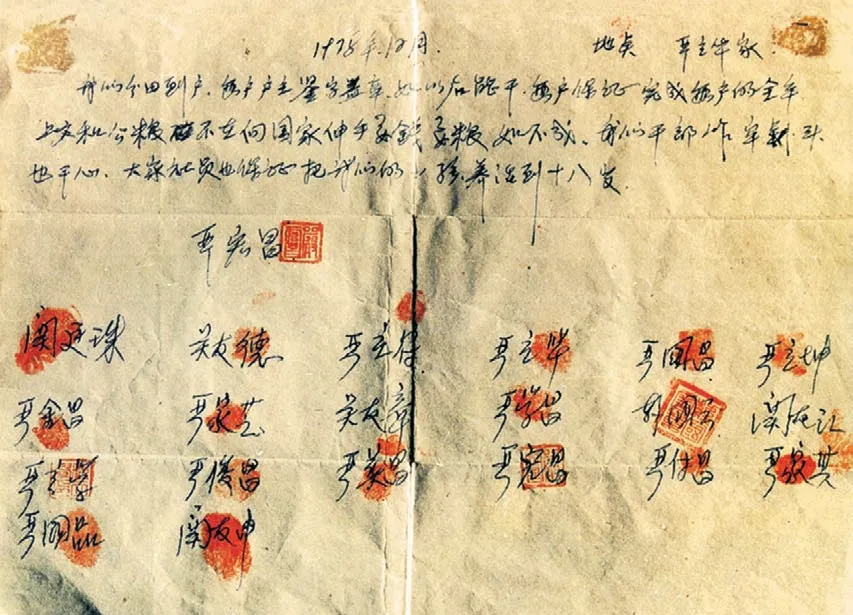
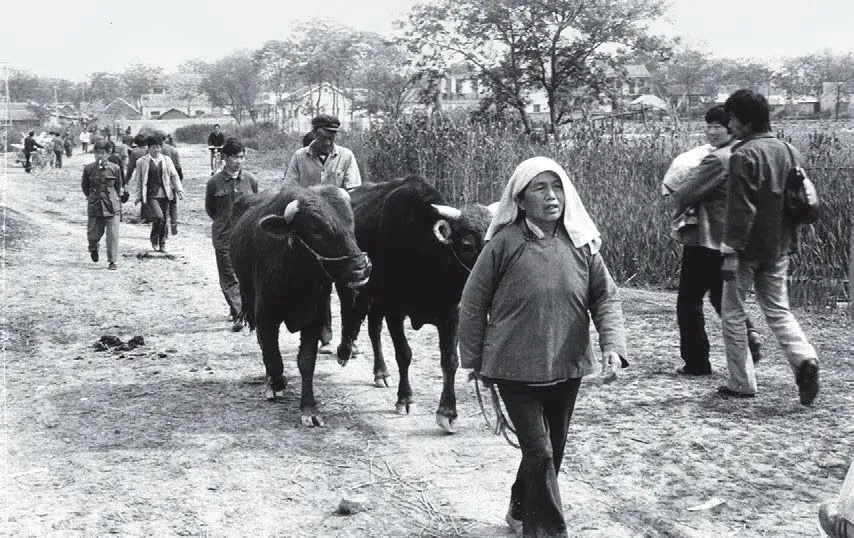
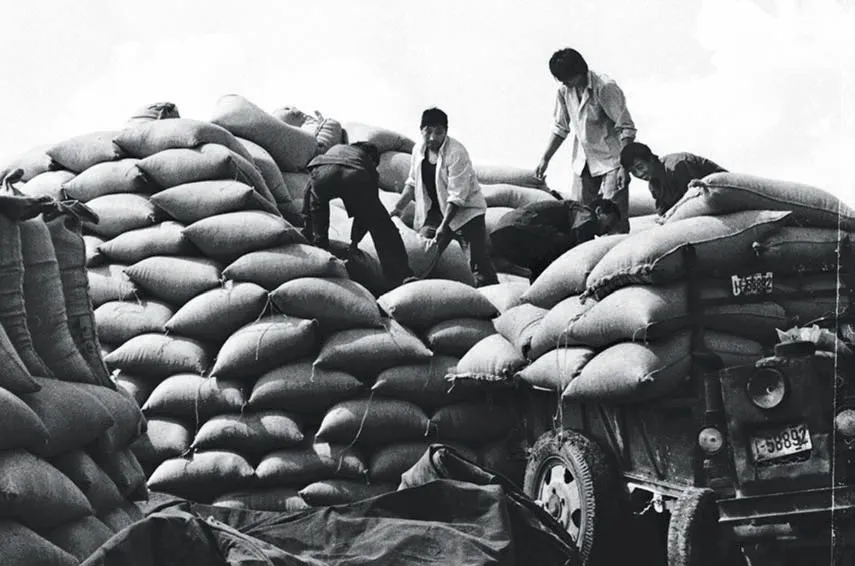
Despite the plan’s dangers, the villagers eventually agreed that they had no choice. Yan drew up a simple contract, thumb-printed in red ink and signed by each of the 20 villagers present (Yan helped some illiterate attendees write their names). In the document, the signatories also agreed that should any of them be killed, the others would raise their children in their stead.
“We divided up the land to save our lives. If we hadn’t, we would have died of hunger,” Yan Lihua, a signatory to the original document, told China.org in 2008.The organizer of the meeting, Yan Hongchang, told the Xinhua News Agency’sChina Album, “At that time I thought, even if I’m killed one day, when my children grew up and saw this, they would know their father wasn’t a coward; it was to give everyone food to eat.”
But the Xiaogang villagers’initiative achieved far more than just prevent starvation—in fact the results were astonishing. In 1979, the village reported grain production of 66 metric tons, equivalent to all its grain harvests between 1955 and 1970 combined, while Xiaogang’s income per capita increased from 22 RMB in 1978 to 400 RMB just a year later. In an interview with Xinhua,Yan Hongchang claimed that by the autumn of 1979, thesurplus of peanuts, grain, and rice grew from 10 kilograms to 200 kilograms per person on average.
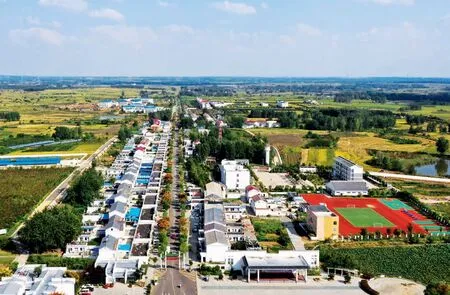
With such vast increases, local offcials quickly learned of what was going on, but despite questioning the ringleader Yan, they hesitated to punish him or halt the practice—perhaps due to a combination of the new system’s success in boosting output, which would please the higherups, and nervousness that they would be blamed for allowing such radical change to take place. For his part, Yan was confident that “if we could eat, I believed the Party would understand.”Yan’s hunch eventually turned out to be correct. The decision of Xiaogang’s villagers to “distribute land and work it independently,” though born of desperation, not only increased yields, but also came at an opportune moment when China’s leaders were debating the future direction of the country’s economic policy.
News of Xiaogang’s initiative worked its way up the chain of command. In April 1979, the county party secretary visited the village to investigate rumors of the initiative, but turned a blind eye. In 1980, Anhui’s provincial party secretary, Wan Li, arrived and actually praised Yan and his fellow farmers.
The “Xiaogang model” began to spread to other villages, and news of the changes reached the central leadership. In 1980, Chinese leader Deng Xiaoping commented, “Some comrades are worried that [producing by household] will affect the collective economy. I don’t think there’s any need for this worry.”
Between 1978 and 1987, as more and more villages took up the Xiaogang model, crop output increased by nearly 50 percent nationwide. By 1986, a version of Xiaogang’s system became national policy under China’s “Guidelines on Rural Work,” which formally endorsed a “household responsibility system (包產到戶)” of agricultural production for the whole countryside.In the long run, the Xiaogang model set off a chain of rural reforms that saw agricultural GDP increase by 4.5 percent a year on average after 1978,compared to 2.2 percent a year in the pre-reform era.
Xiaogang’s status as “China’s Number One Reform Village” was cemented, and it has since become a pilgrimage spot for offcials promoting rural development policies. Each of China’s last three presidents has visited. In 2016, President Xi Jinping lauded Xiaogang as “China’s symbol of reform” when he toured the village.Nowadays, fewer and fewer of Xiaogang’s villagers work the fields full-time. The village’s fame has made it a tourist attraction, offering other opportunities for employment. A memorial hall was built in 2005 to commemorate the role of Xiaogang in pushing China towards reform and opening up. The contract drawn up by Yan and signed by his neighbors is on display, with a stone replica erected in the village square.
But though the agricultural reforms prevented Xiaogang’s villagers from starving, it never made them wealthy.Once other areas also abandoned the commune system, Xiaogang was soon eclipsed by the competition. In 2003, per capita income in the village was 2,300 RMB, below the national average of 2,600 RMB. Like much of the Chinese countryside, Xiaogang has suffered from population decline in recent years as younger generations head to the city to make a living.
Nationwide, the rural-urban income divide has been growing. In 2018, the disposable income gap between urban and rural residents reached 24,634 RMB, according to the National Bureau of Statistics. In 2004, China became a net importer of food for the first time. New reforms are in the works, and a plan to “revitalize” the rural economy was launched in 2017,with the government committing to achieve “agricultural modernization”by 2035 by increasing the use of technology in farming and digitizing the rural economy.
Yan Hongchang’s son, Yan Yushan,has left the fields to become an entrepreneur. But he is clear about what’s needed to bring prosperity to the countryside, tellingChina Album,“Our generation needs to use the spirit of my father’s generation and carry it on.”

